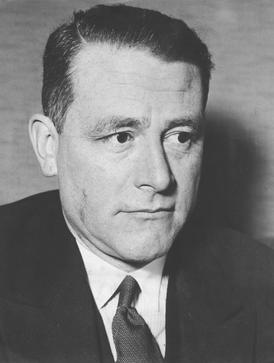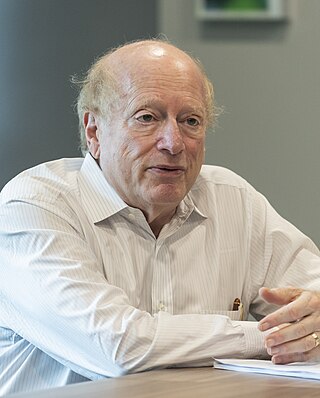Related Research Articles

Sovereignty can generally be defined as supreme authority. Sovereignty entails hierarchy within the state, as well as external autonomy for states. In any state, sovereignty is assigned to the person, body or institution that has the ultimate authority over other people in order to establish a law or change existing laws. In political theory, sovereignty is a substantive term designating supreme legitimate authority over some polity. In international law, sovereignty is the exercise of power by a state. De jure sovereignty refers to the legal right to do so; de facto sovereignty refers to the factual ability to do so. This can become an issue of special concern upon the failure of the usual expectation that de jure and de facto sovereignty exist at the place and time of concern, and reside within the same organization.

John Bordley Rawls was an American moral, legal and political philosopher in the modern liberal tradition. Rawls has been described as one of the most influential political philosophers of the 20th century.

The Federalist Society for Law and Public Policy Studies (FedSoc) is an American conservative and libertarian legal organization that advocates for a textualist and originalist interpretation of the U.S. Constitution. Headquartered in Washington, D.C., it has chapters at more than 200 law schools and features student, lawyer, and faculty divisions; the lawyers division comprises more than 70,000 practicing attorneys in ninety cities. Through speaking events, lectures, and other activities, it provides a forum for legal experts of opposing views to interact with members of the legal profession, the judiciary, and the legal academy. It is one of the most influential legal organizations in the United States.

Randy Evan Barnett is an American legal scholar. He serves as the Patrick Hotung Professor of Constitutional Law at Georgetown University, where he teaches constitutional law and contracts, and is the director of the Georgetown Center for the Constitution.

Originalism is a method of constitutional and statutory interpretation. Originalists assert that legal text should be interpreted based on the original understanding at the time of adoption. Originalists object to the idea of the significant legal evolution being driven by judges in a common law framework and instead favor modifications of laws through the Legislature or through Constitutional amendment.

Carl Schmitt was a German jurist, political theorist, geopolitician and prominent member of the Nazi Party.
Popular sovereignty is the principle that the leaders of a state and its government are created and sustained by the consent of its people, who are the source of all political legitimacy. Popular sovereignty, being a principle, does not imply any particular political implementation. Benjamin Franklin expressed the concept when he wrote that "In free governments, the rulers are the servants and the people their superiors and sovereigns".

Albert Venn Dicey, was a British Whig jurist and constitutional theorist. He is most widely known as the author of Introduction to the Study of the Law of the Constitution (1885). The principles it expounds are considered part of the uncodified British constitution. He became Vinerian Professor of English Law at Oxford, one of the first Professors of Law at the LSE Law School, and a leading constitutional scholar of his day. Dicey popularised the phrase "rule of law", although its use goes back to the 17th century.
Restoring the Lost Constitution: The Presumption of Liberty is a 2003 book about the United States Constitution written by Randy Barnett, a professor of law at the Georgetown University Law Center. In the book, Barnett outlines his theory of constitutional legitimacy, interpretation, and construction. He argues that the Constitution should be interpreted by its "original meaning", distinct from the Founding Fathers' original intent.

John Hart Ely was an American legal scholar. He was a professor of law at Yale Law School from 1968 to 1973, Harvard Law School from 1973 to 1982, Stanford Law School from 1982 to 1996, and at the University of Miami Law School from 1996 until his death. From 1982 until 1987, he was the 9th dean of Stanford Law School.
Legality, in respect of an act, agreement, or contract is the state of being consistent with the law or of being lawful or unlawful in a given jurisdiction, and the construct of power.
Jedediah Spenser Purdy is an American legal scholar and cultural commentator. In 2022 he became the Raphael Lemkin Professor of Law at Duke University School of Law, where he teaches courses on Property and Past and Future of Capitalist Democracy. From 2018 to 2022 he was William S. Beinecke Professor of Law at Columbia Law School, teaching courses on American Constitutional Law, Constitutional Law and Democracy and its Crisis. He previously taught at Duke University School of Law from 2004 to 2018.

Mark Victor Tushnet is an American legal scholar. He specializes in constitutional law and theory, including comparative constitutional law, and is currently the William Nelson Cromwell Professor of Law at Harvard Law School. Tushnet is identified with the critical legal studies movement.
Peter Berkowitz is an American political scientist and legal scholar. He served as the Director of Policy Planning at the United States Department of State. He currently serves as the Tad and Dianne Taube Senior Fellow at the Hoover Institution of Stanford University.
Judith Nisse Shklar was a philosopher and political theorist who studied the history of political thought, notably that of the Enlightenment period. She was appointed the John Cowles Professor of Government at Harvard University in 1980.
Bruce Arnold Ackerman is an American legal scholar who serves as a Sterling Professor at Yale Law School. In 2010, he was named by Foreign Policy magazine to its list of top global thinkers. Ackerman was also among the unranked bottom 40 in the 2020 Prospect list of the top 50 thinkers for the COVID-19 era.
The counter-majoritarian difficulty is a perceived problem with judicial review of legislative laws. As the term suggests, some oppose or see a problem with the judicial branch's ability to invalidate, overrule, or countermand laws that reflect the will of the majority.
Jan Ginter Deutsch was a Polish-born American philosopher and legal scholar best known for his work on the philosophy of corporate law, jurisprudence, and the cultural underpinnings of capitalist democracy. Deutsch's most recent book, Power and Precedent, is a summation of his work on United States jurisprudence over the past few decades.
Constitutionalism is "a compound of ideas, attitudes, and patterns of behavior elaborating the principle that the authority of government derives from and is limited by a body of fundamental law".

Keith E. Whittington is an American political scientist. He is the William Nelson Cromwell Professor of Politics at Princeton University since 2006. In July 2024, he will join the Yale Law School faculty. Whittington's research focuses on American constitutionalism, American political and constitutional history, judicial politics, the presidency, and free speech and the law.
References
- 1 2 3 Paul W. Kahn , Our Faculty, Yale School of Law
- ↑ Kahn, Paul, W., Sacrificial Nation , The Utopian , March 29, 2010
- ↑ Kahn, Paul W., To overrule a precedent , Opinion, The Hill , May 6, 2022